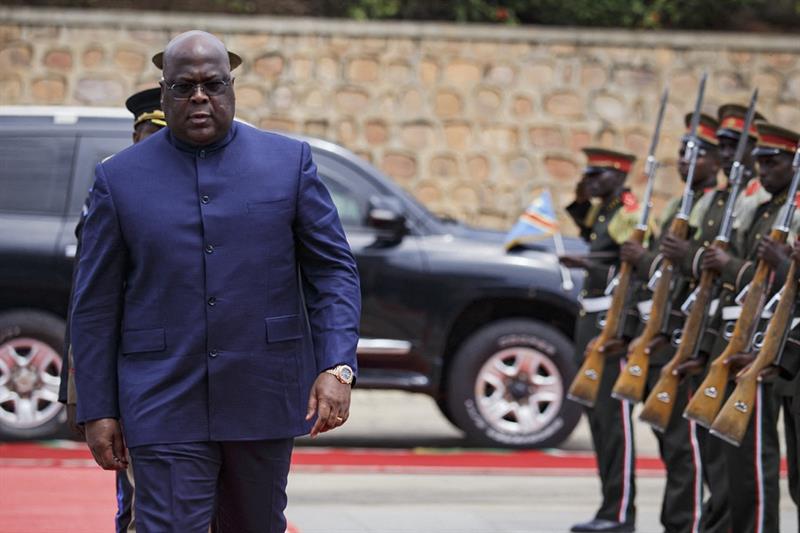
Regional heads of state have called for an immediate cease-fire by all parties in eastern Congo, where tensions have grown amid talk of war as DR Congo and neighboring Rwanda trade allegations of backing armed rebels.

The communique issued Saturday at the end of an East African Community summit (EAC) also directed troop-contributing countries to immediately deploy more troops to a regional force created and sent to eastern Congo last year. It also directed defense chiefs to meet within one week and called for more dialogue and de-escalation of tensions.
The talks were hosted in Burundi by the seven-nation EAC, which is leading mediation efforts to end the fighting in the vast central African nation.
The heads of state of both DR Congo and Rwanda attended in a “cordial and friendly atmosphere,” the communique said.
Some observers fear the toll and regional effects if the two countries slide again into all-out conflict as they did in the late 1990s and early 2000s. Alarm soared last month after Rwanda fired on a Congolese military aircraft it alleged violated its airspace. Congo called it “a deliberate act of aggression that equals an act of war” with the goal of sabotaging regional peace efforts.
Kinshasa for months has accused Rwanda of supporting the M23 armed group _ whose origins lie in the region’s ethnic fighting _ and powerful voices in the West have openly agreed. Rwanda denies backing the M23 rebels, which is one of dozens operating in mineral-rich eastern Congo, and accuses Congo of backing another rebel group that reportedly includes ethnic Hutus who participated in the 1994 Rwanda genocide that killed more than 800,000 ethnic Tutsis and moderate Hutus.
United Nations experts have said they have “substantial evidence” of Rwandan government forces crossing into Congo to reinforce M23 rebels or to conduct operations against the other rebel group. The United States, France and Germany have urged Rwanda to stop supporting the rebels.
In a statement ahead of the summit, the Congolese presidency had called for the EAC force to be made more “offensive” to tackle the rebels.
Saturday’s regional summit occurred days after Pope Francis visited Congo’s capital, Kinshasa, to highlight the toll that decades of conflict have taken on the country, particularly eastern Congo, a volatile region rich in minerals critical to much of the world’s technology. A planned visit by the pope to Goma in eastern Congo was called off because of the insecurity.
At a Nov. 23 summit in Angola, which included Congo’s president and Rwanda’s foreign minister, regional leaders called for a cease-fire in eastern Congo to be followed by a withdrawal of rebels from major towns under M23 control. The group said it would leave some of the occupied territories before Jan. 15, but some areas remain under its control and fighting has intensified in some areas.
Saturday’s summit also signalled a possible rapprochement between Burundi and Rwanda, with their two leaders greeting each other warmly in Bujumbura.
The tiny countries have long had tempestuous relations, each accusing the other of interfering in their internal affairs.
In 2020, Kagame urged the then newly elected Ndayishimiye to reset diplomatic ties but his overture was rejected as “hypocritical”.
Burundi has accused Rwanda of harbouring those behind a failed 2015 coup that plunged the country into violent chaos.